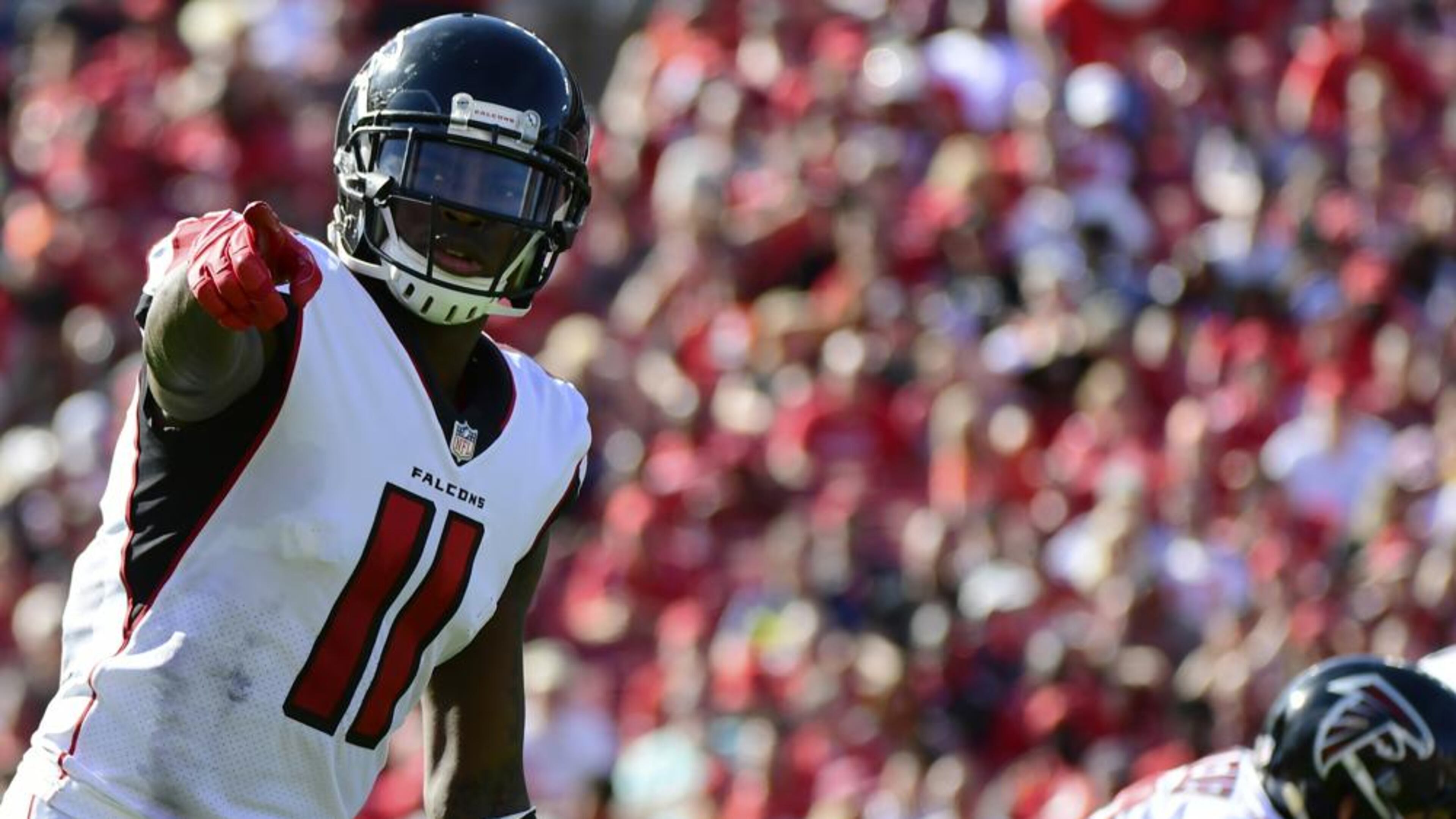Julio Jones may need to take heat of holdout to get deal he wants

Falcons star Julio Jones didn't show up for voluntary OTAs this week. I don't blame him. Look at the players who suffered serious injuries during the NFL's silly spring, including teammate Steven Means.
No Julio is no big deal this time of year. Eventually, though, Jones may have to decide if he’s willing to stay away from a mandatory camp until he gets what’s coming to him. Falcons general manager Thomas Dimitroff has publicly committed to a pay raise for Jones. I’m guessing that Jones can expect to double the annual average of $10.5 million he’s owed over the next two years with at least $40 million in guaranteed money.
Dimitroff has expressed confidence that a deal will get done with little problem. He said the same thing after Jones held out of minicamp last summer, but a deal wasn’t reached until the eve of training-camp reporting day. And that was a relatively simple negotiation that involved no new money.
Jones’ next contract will include a lot of new money. He’s no worse than the third-best wide receiver in the NFL, but the average annual value of his contract now ranks 12th at his position. Wide receivers Odell Beckham and Antonio Brown recently reset the elite-receiver market with huge deals, and now it’s time for Jones to get his.
The Falcons say they will pay Jones like an elite receiver. Franchise owner Arthur Blank said Jones will play for the team “for life.” But that’s all talk. At some point, it will be time for the Falcons and Jones to get down to business.
The Falcons are expecting Jones to report for the mandatory minicamp next month, but Jones hasn't publicly committed to it. The team was caught flat-footed when Jones didn't show up for minicamp last June, so their read on him isn't necessarily reliable. If Jones still doesn't have a deal then, or when training camp opens in July, he will have to decide whether to use the only leverage he has by holding out.
That strategy paid off recently for two star players. Aaron Donald earned a record contract from the Rams in August after he held out for the second year in a row. A day later Khalil Mack signed an even bigger contract with the Bears, who acquired him in a trade with the Raiders while he was holding out.
Holding out didn’t turn out well for Steelers running back Le’Veon Bell or Seahawks safety Earl Thomas. Bell declined to sign his $14.5 million franchise tag last summer and ended up sitting out the entire season. Thomas reported after not getting a contract extension and subsequently suffered a season-ending leg injury during the fourth game.
It’s not easy for a player to hold out. The team has the leverage of a contract and the threat of fining the player $40,000 per day. Fans whose belief in loyalty and honoring contracts only goes one way will criticize the player for not reporting. So, too, will those media always willing to carry water for teams and the league.
A player who holds out takes hits to his pocket and his reputation. The potential fines aren’t so bad because these players usually are stars in line for huge deals. But some athletes don’t like taking heat from the public while also bleeding money.
Jones caught some grief from Falcons backers when he held out of minicamp last summer. Criticism of Jones increased when news broke that he wasn’t going to report to training camp without an adjusted contract. Anger at Jones dissipated quickly once he showed up, but it’s easy to forget about a holdout that never really happened.
No objective observers can deny Jones deserves a big payday (at least not those with knowledge of how NFL contracts work). Since signing his current deal in 2015, Jones ranks first among NFL receivers in yards, second in catches and tied for 11th in touchdowns. No one except quarterback Matt Ryan is more responsible for the success of the Falcons in the Blank era, and no one has provided more entertainment than Jones.
The Falcons know this. They also must look out for their business interests. The Falcons are within their rights to use the leverage available to them. Teams routinely call the bluffs of players threatening to hold out and once they inevitably report, deal with the fallout later.
Donald and Mack didn’t fold, though. The Falcons want to avoid testing Jones. Coach Dan Quinn, who probably needs a good season to keep his job, values his “Brotherhood.” A holdout by his star wide receiver wouldn’t necessarily ruin those good vibes, but it wouldn’t help.
That may be what Jones must do if the Falcons don’t pay him what he thinks he’s worth. Being the “bad guy” sometimes is the only option for players in his position.

